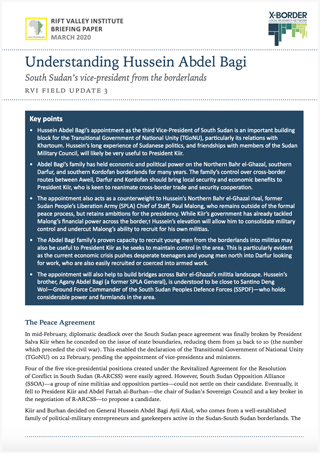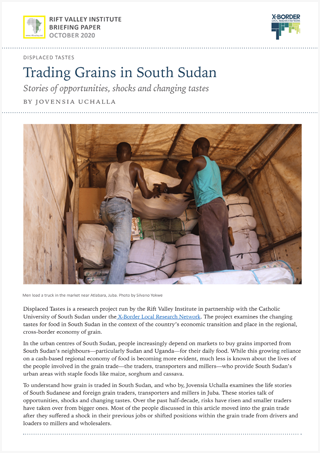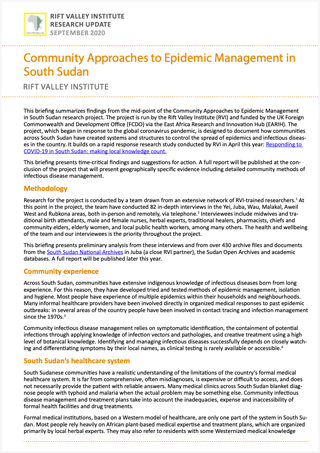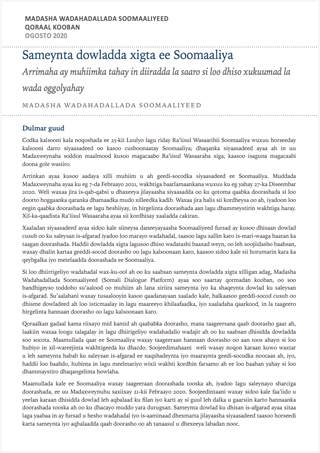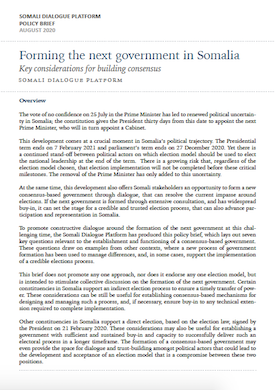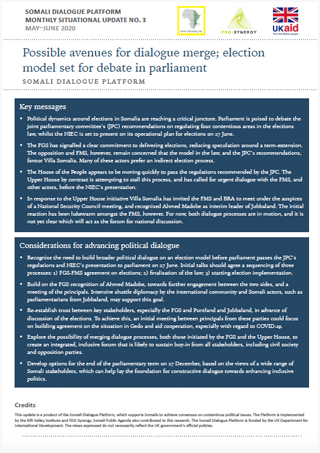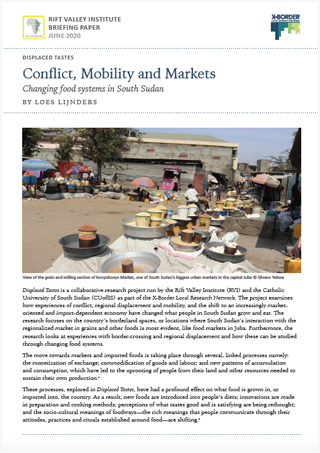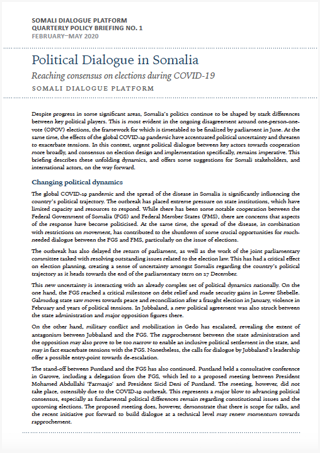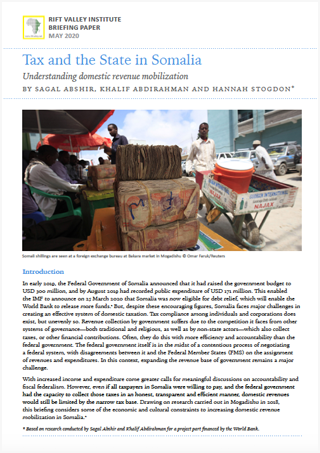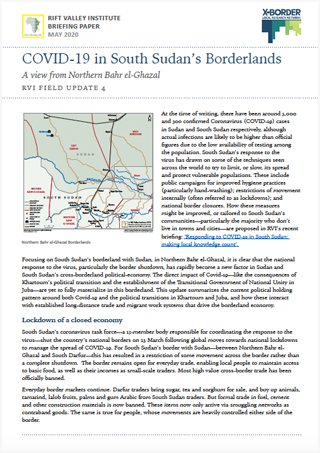Key points • Hussein Abdel Bagi’s appointment as the third Vice-President of South Sudan is an important building block for the Transitional Government of National Unity (TGoNU), particularly its relations with Khartoum. Hussein’s long experience of Sudanese politics, and…
RVI publishes books, research reports, research papers, briefings and meeting reports in a range of formats. Publications cover policy, research, arts, culture and local knowledge in the countries of eastern and central Africa. Research publications—books, reports and papers—are peer-reviewed. Some RVI publications are also available in French and/or Arabic.
The RVI is a signatory of the Budapest Open Access Initiative (2001); all publications are free for download in PDF format under Creative Commons licences. The views expressed in books and reports published by the RVI are those of the authors, not the Institute.
SEARCH
PUBLICATION TYPE
LANGUAGE
REGION
COUNTRY
Displaced Tastes is a research project run by the Rift Valley Institute in partnership with the Catholic University of South Sudan under the X-Border Local Research Network. The project examines the changing tastes for food in South Sudan in…
This briefing summarizes findings from the mid-point of the Community Approaches to Epidemic Management in South Sudan research project. The project is run by the Rift Valley Institute (RVI) and funded by the UK Foreign Commonwealth and Development Office…
Codka kalsooni kala noqoshada ee 25-kii Luulyo lagu riday Ra’iisul Wasaarihii Soomaaliya wuxuu horseeday kalsooni darro siyaasadeed oo kasoo cusboonaatay Soomaaliya; dhaqanka siyaasadeed ayaa ah in uu Madaxweynaha soddon maalmood kusoo magacaabo Ra’iisul Wasaaraha xiga, kaasoo isaguna magacaabi doona…
The vote of no confidence on 25 July in the Prime Minister has led to renewed political uncertainty in Somalia; the constitution gives the President thirty days from this date to appoint the next Prime Minister, who will in…
The third update from RVI’s Somali Dialogue Platform project examines political dynamics around elections in Somalia and considerations for advancing dialogue to reach consensus. The update is a product of the Somali Dialogue Platform, which supports Somalis to achieve consensus on…
Displaced Tastes is a collaborative research project run by the Rift Valley Institute (RVI) and the Catholic University of South Sudan (CUofSS) as part of the X-Border Local Research Network. The project examines how experiences of conflict, regional displacement…
Despite progress in some significant areas, Somalia’s politics continue to be shaped by stark differences between key political players. This is most evident in the ongoing disagreement around one-person-onevote (OPOV) elections, the framework for which is timetabled to be…
In early 2019, the Federal Government of Somalia announced that it had raised the government budget to USD 300 million, and by August 2019 had recorded public expenditure of USD 171 million. This enabled the IMF to announce on…
Focusing on South Sudan’s borderland with Sudan, in Northern Bahr el-Ghazal, it is clear that the national response to the virus, particularly the border shutdown, has rapidly become a new factor in Sudan and South Sudan’s cross-border political economy….
Recent Publications

EWNET Writes: Writing Workshop Session I
December 18, 2025
The Ethiopian Women Researchers Network (EWNET) inaugural writing workshop series aims to not only provide women researchers with uninterrupted time for their scholarly projects, but also build a supportive academic community. The first session, entitled ‘EWNET Writes: Writing Workshop Session

SSC-Khaatumo: Perspectives on the significance and implications of its formation
December 12, 2025
On 15 April 2025, during a visit to the city of Las Anod in Sool, Prime Minister Hassan Abdi Barre officially declared the federal government’s recognition of SSC-Khaatumo (SSC-K hereafter) as a federal member state, marking an important milestone in

Aid and Conflict Sensitivity in Contemporary Ethiopia
November 17, 2025
This study assesses conflict sensitivity practices among humanitarian, development and peacebuilding (HDP) actors in Ethiopia. It seeks to raise awareness and foster a deeper understanding of the evolving aid landscape in the country while analysing the challenges that affect conflict-sensitive

